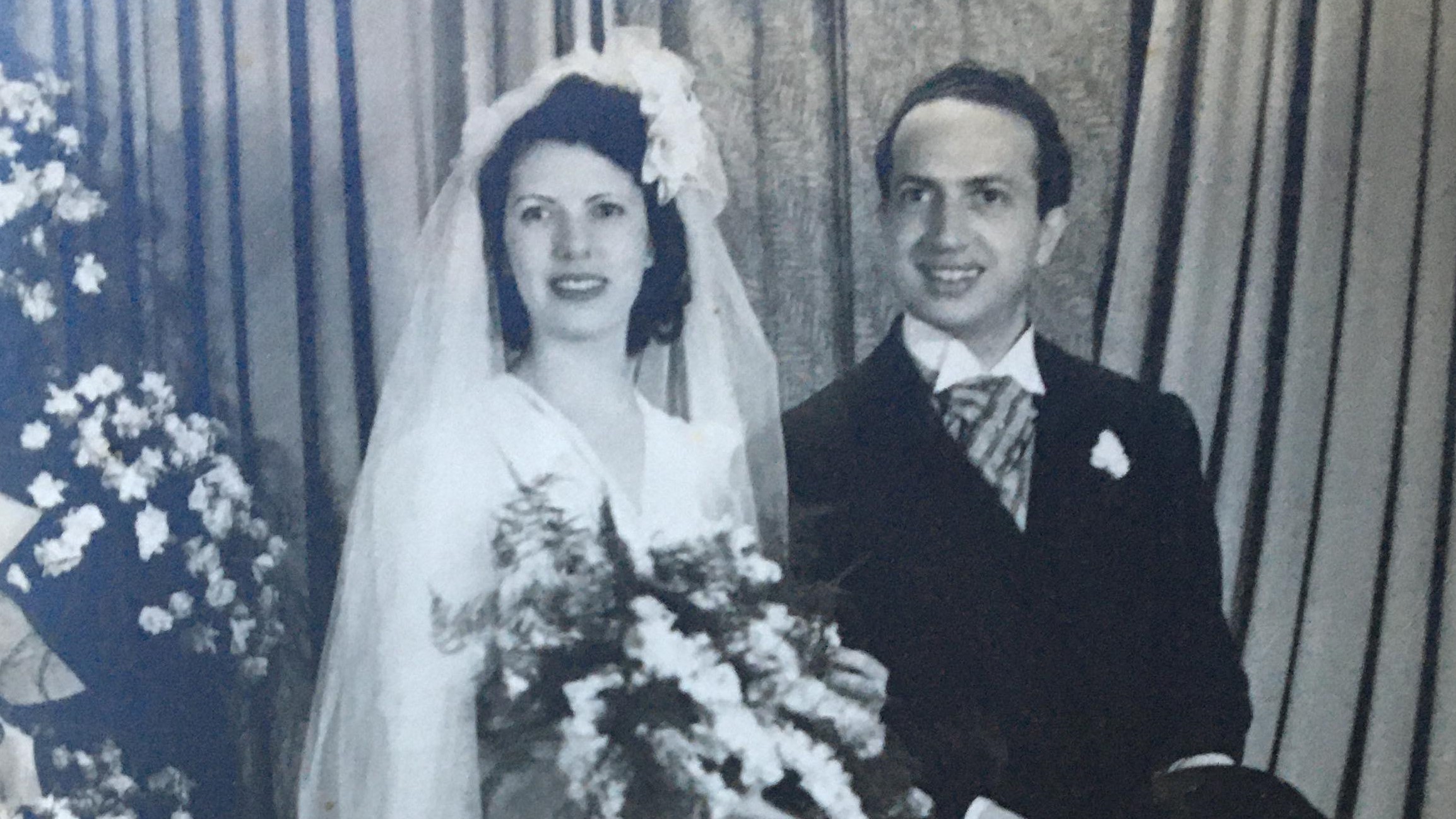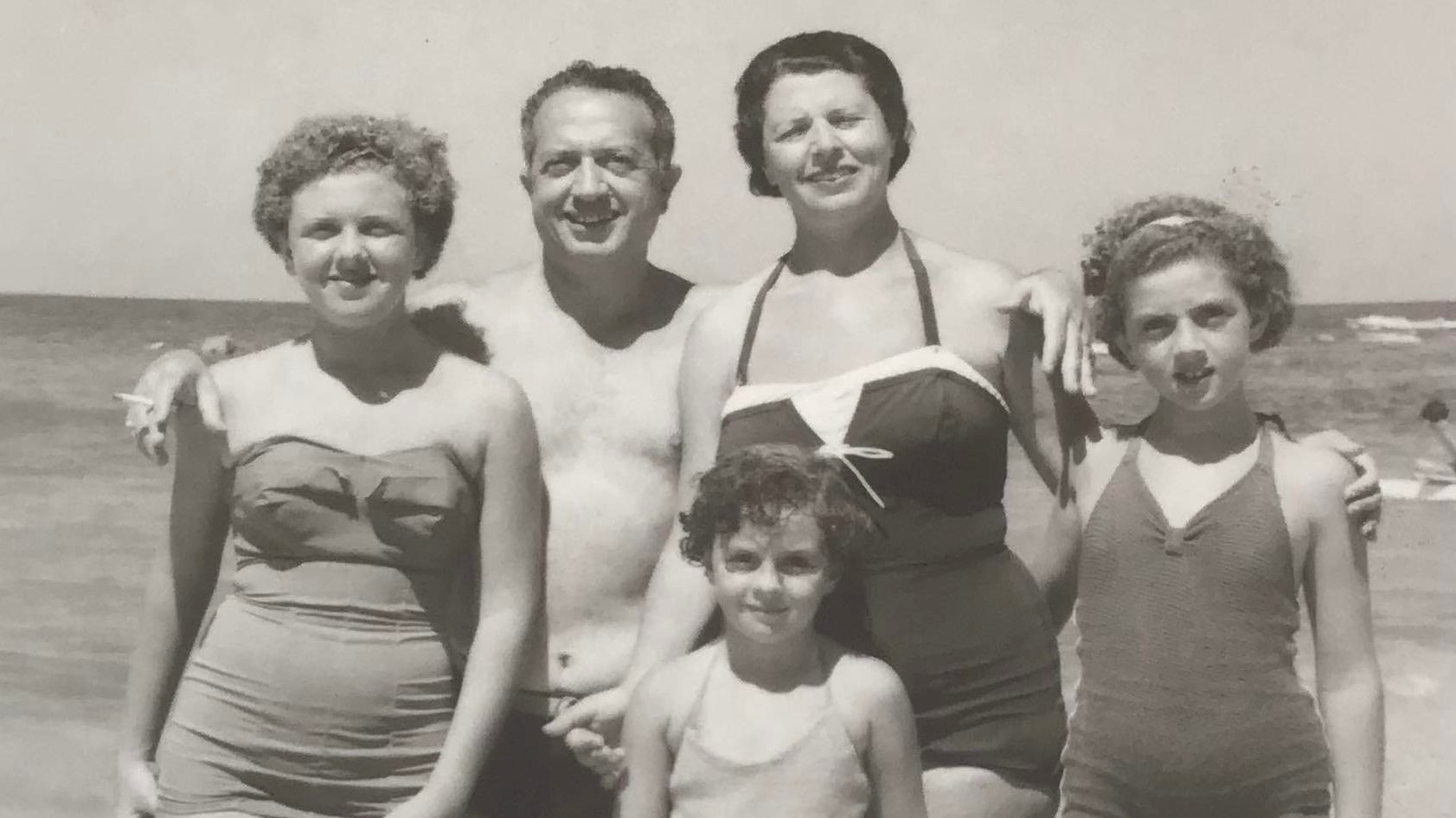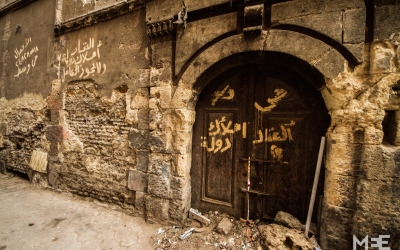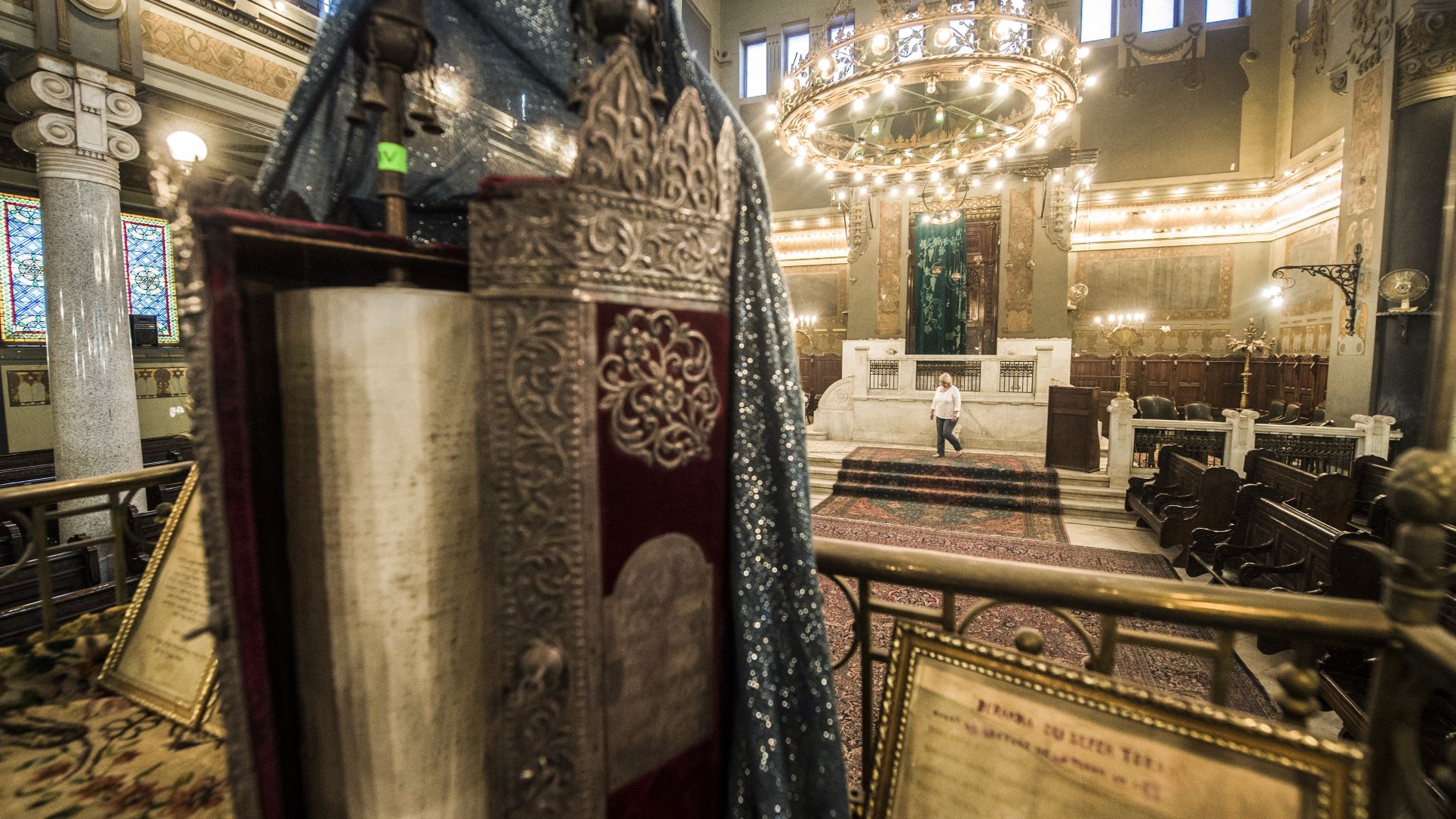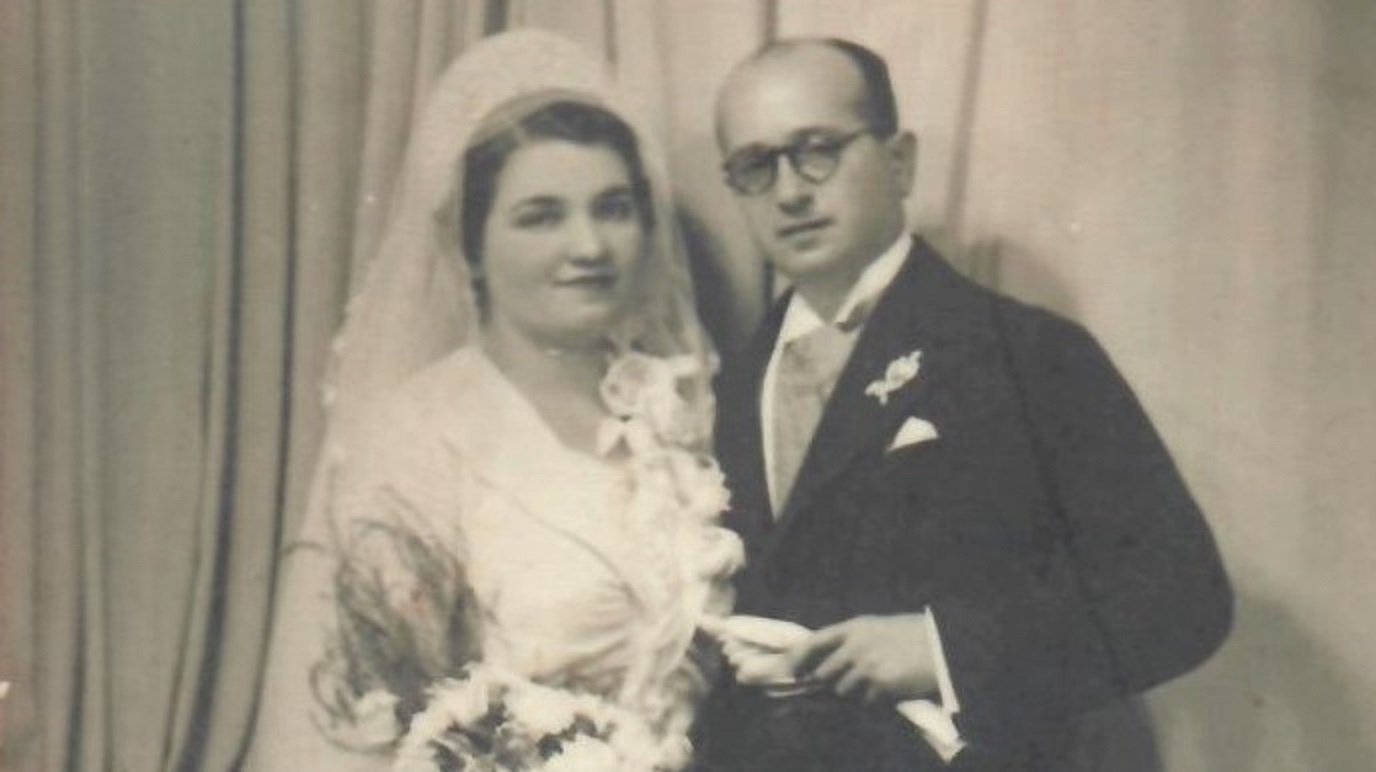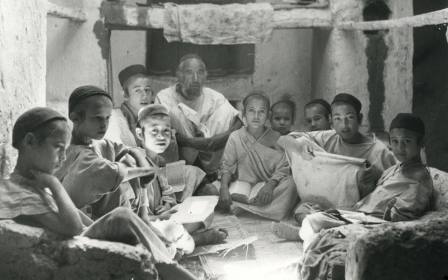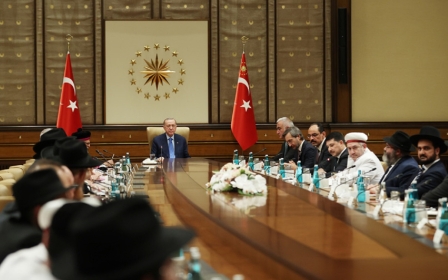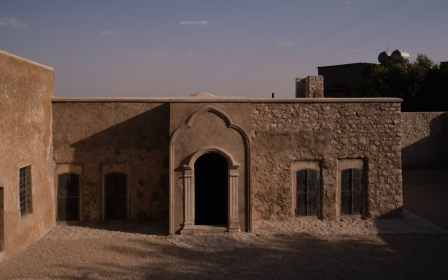Why a former Israeli diplomat is tracing the lost history of Jewish surnames in Egypt
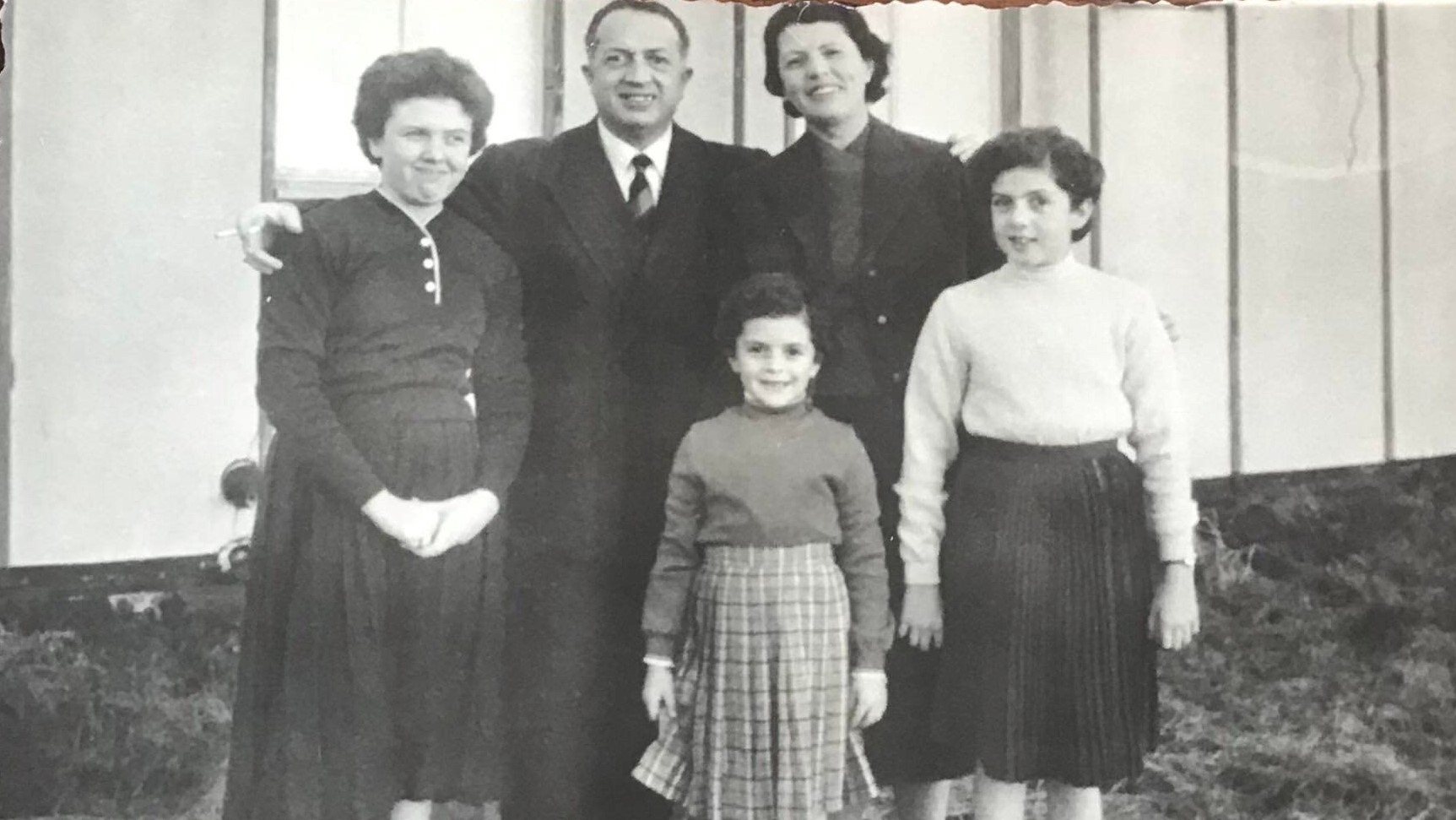
A shy child who liked to spend most of her time at home, Viviane Bowell grew up with the feeling that she was in the wrong society.
Born in the vibrant Egypt of the first half of the 20th century, Bowell was raised in a well-off family with a dynamic social life and a home in the bustling centre of Cairo, near what is now Talaat Harb Square.
New MEE newsletter: Jerusalem Dispatch
Sign up to get the latest insights and analysis on Israel-Palestine, alongside Turkey Unpacked and other MEE newsletters
She remembers the fabulous atmosphere around her family's flat, people going out to spend time and gossip at places like the Semiramis Hotel's rooftop, and the Mena House, with its gardens and jasmine scents, right beside the Pyramids of Giza.
“I remember my parents going out nearly every evening, because life started after 9pm in Cairo,” Bowell told Middle East Eye. “Everybody went out all the time. There were no phones, you just knocked on somebody’s door. I was dragged everywhere.”
Bowell’s parents were born in Egypt to families who had arrived there from elsewhere in the region. Her mother’s family came to Egypt in 1910 from Aleppo in Syria, lured by the sense of opportunity.
At around the same time, her father's family also settled in Egypt, from Istanbul – she believes – moved to act by the looming collapse of the Ottoman Empire.
The languages spoken at home were a reminder of that mix of origins: her maternal grandmother spoke only Syrian Arabic, the other side of her family spoke Ladino when they did not want to be understood, and the rest of the time it was mainly French, which was also the language of her school, the Lycee Francais in Bab El Louk.
While the family was secular, Sephardic tradition played a big role in Bowell's upbringing and the family observed all the main Jewish holidays. Twice a year they went to the mighty Adly synagogue in downtown Cairo for the Jewish New Year, Rosh Hashanah, and the eve of Yom Kippur.
Leaving Egypt
This idyllic lifestyle began to change in the middle of the century.
“It all started in 1948, which I always call the beginning of the end. The moment the State of Israel was created, it just changed everything,” she told MEE, noting that most of her father’s family left Egypt at that point.
For Bowell, the final blow came in 1956. Returning home from school one day, she found her father in a panic, packing up their belongings. The first news of the Suez crisis had just begun to circulate. They moved to her uncle’s apartment during the fighting in Cairo. She remembers shouts to turn off the lights, eating in the dark, and the relief brought with the dawn, when the air raids would stop.
The family did not go back home until after the conflict was over.
They did so on 10 December 1956 and arrived shortly after in an old, prefab hostel in the west of England. Bowell remembers the awful canteen food, almost all of which contained pork, which the family did not eat. To get to school they had to cross through the fields in the freezing cold.
“It was heartbreaking,” said Bowell, who recently published a book, To Egypt with Love: Memories of a Bygone World, about her story. “I can’t imagine how my parents felt. I was 14 and I remember feeling lost; but not to the extent my parents felt.”
Most of the people who made up Bowell's life were now scattered around the world, people and friends she would never meet again. In time, even the names were to become so embedded in the past that she wondered if she had really heard them, or whether they had ever existed.
An index of Egypt’s Jewish surnames
Since 2019, veteran Israeli diplomat Jacob Rosen-Koenigsbuch has been compiling indexes of Jewish surnames in Egypt, in the hope of saving them from being lost in the void of untold history.
So far, he has been able to gather hundreds of surnames of Jewish families who, like Bowell's family, lived in Cairo or Alexandria at some point in the 20th century.
Rosen-Koenigsbuch became passionate about genealogy out of personal necessity.
Born in Poland, his parents were Holocaust survivors, and kept their past shrouded in stony silence until their death, two decades ago. When both had passed away, the veteran diplomat knew only his grandfather’s name, as he had been named after him.
“Only after they died, I started making investigations. And I became some sort of an expert in looking into archives and documents in Poland and Germany,” he told MEE.
Later, his career led him to hold several posts in the Arab world, including that of Israel’s ambassador to Jordan between 2006 and 2008.
Taking his interest in the roots of Jewish families wherever he went, Rosen-Koenigsbuch was quick to realise that the genealogical tools available to Eastern Europeans did not exist in the Middle East.
In the case of Egypt, he also found that despite recent literary and academic interest in the life of 20th century Jewish communities in the country, personal narratives were mostly absent. He believes that gap in research is due largely to the short lifespan of those communities, as well as the inaccessibility of most state archives.
“The question is, ‘Who were they?’” he asked.
Rosen-Koenigsbuch, who has also collated the names of Jewish families from Baghdad and Damascus, began working to answer those questions.
In the early 19th century, Egypt experienced a large influx of people from all over the Mediterranean basin and beyond, attracted mainly by its economic opportunities and stability.
Jewish communities, like so many others in Egypt, enjoyed their heyday between the opening of the Suez Canal, in 1869, and the mid-20th century. Numbering in the tens of thousands, they settled mostly in Cairo and Alexandria. Yet the establishment of Israel and a nationalist regime in Egypt, from 1952, precipitated their expulsion. Today, only around 100 remain in the capital.
So far, Rosen-Koenigsbuch has been able to trace 2,130 surnames of families who lived in Cairo in the 20th century, and 1,618 surnames of families who once lived in Alexandria. To gather all these surnames, he consulted several people who were born in Cairo and were able to tell him the surnames they remembered. He also traced some surnames in personal memoirs, business and telephone directories, an index of people buried in the Bassatine Jewish cemetery in Cairo, Egyptian Jewish weeklies and even circumcision registers.
There was also Les Fleurs de L’Orient, a website dedicated to tracking Sephardic ancestry within the Ottoman Empire.
One particularly promising source were groups of Egyptian Jews on Facebook, with members now living all over the world.
“The lists on Cairo and Alexandria can be used in a very analytical way to understand anything: are the families from North Africa, from Aleppo, from Italy, from Damascus… [are they] Sephardi?”, Rosen-Koenigsbuch said.
'You think: I am going to look them up, to see if they existed. And when you see their names, it's just brilliant, heartwarming'
- Viviane Bowell
“Taking in mind you barely have any alternative sources, this is the best [tool] you can have right now. Slowly I am closing the gap," he added.
For Egyptian Jews like Viviane Bowell, the veteran diplomat's work has helped revive memories of a chapter in their lives that would otherwise have been lost.
"Seeing all these names makes it real," Bowell said. "[We] have been scattered all over the world, people that you never see again, friends you never met again, and you think I am going to look them up, to see if they existed. And when you see their names, it's just brilliant, heartwarming."
One of the findings Rosen-Koenigsbuch considers most relevant is that the indexes prove that members of the Jewish communities came from very different places, suggesting great mobility and dynamism. The lists also show a higher number of Ashkenazi Jews than is commonly believed, around 20 percent of the total.
“There was this joke in Cairo [that] if a Jew died in Cairo, he probably was not born there; [and] if he was born in Cairo, he will probably not die there,” he said.
Ashkenazi community
One of these Ashkenazi families was that of Viviane Acker Levy, born in Alexandria in June 1944 and expelled from Egypt in May 1961, at the age of 17.
The paternal side of Acker’s family came from Yalta, in what is now Ukraine. They left at the turn of the 20th century and settle in Jaffa, Palestine, but because of the open borders in Egypt at the time, they decided to settle in Alexandria, where her grandfather opened a "Salon de couture".
Her mother’s paternal side of the family came from Nikolaev, in what is also Ukraine today. They arrived in Cairo aided by a rabbi who found them in Turkey and took them to Egypt so that they would not have to serve in the Ottoman army. The maternal side came instead from present-day Romania and landed in Alexandria.
Viviane’s parents eventually married in December 1938 and settled in the Mediterranean city, where both she and her late brother Victor were born. There, they lived in the Greek Quartier, in an apartment that Viviane remembers as a mix of cosmopolitan families of various multi-ethnic backgrounds: Greek, Armenian, Coptic, Jewish, Muslim.
“My parents always encouraged my brother and I to attend cultural events; they took us to the Theater Mohamed Ali for ballet, symphony and opera,” she told MEE. “Rigoletto was my first opera and it was a great experience.”
Another unforgettable memory Viviane has of Alexandria is the city’s beach scene and the cabana her family rented in the Rushdi district from 1940 until 1960, to spend their three months of vacation.
She also has fond memories of the popular cinema Metro, the ice creams in Elite patisserie, gatherings in the Brazilian Coffee Stores downtown, special events at Cafe Athineos, and fancy dancing soirees at the majestic Cecil and San Stefano hotels.
As for most other Egyptian Jews, that life was changed irrevocably by the turbulent middle of the 20th century. And Viviane, along with her brother, her mother and her grandfather, was forced to leave Egypt aboard the SS Esperia.
“We had to hand over our Egyptian passport and we had to sign an official document stating that ‘we are voluntarily giving up our Egyptian citizenship and we will never be granted permission to come back to Egypt’,” she said.
'Extremely useful'
For many genealogy hobbyists, Rosen-Koenigsbuch’s indexes have become a source of inspiration.
Barbara Ras Wechsler was born in England, while her family lived in India. During her childhood and youth, she and her family bounced from one country to another: Bangladesh, Pakistan, Germany, the US and England. Yet her roots were partly in Egypt. Her father, Hermann, was born in Alexandria, where his father had settled before him, and where he married Barbara's mother, Dolly, in 1950.
“My father had a very detailed knowledge of Jewish customs and rites,” Barbara told MEE. “And he always explained that it was due to the size of the Jewish community and the exposure to Jewish life.”
In the time of what she calls “the big exodus” from Egypt, Barbara's family was frantic: the Maltese and British members - and also her mother - had to depart at short notice, leaving everything behind. They set course for Germany.
Barbara notes that the main challenge to understanding those generations is that first-hand memories are mostly gone, as many are no longer alive. And it is in this void, she considers, that tools such as Rosen-Koenigsbuch’s indexes become “extremely useful” sources.
“More knowledge expands my horizon and makes me more creative,” Barbara added. “Lists of surnames are great to sort relatives by origins: you can narrow down your search [...] This is very helpful.”
Middle East Eye delivers independent and unrivalled coverage and analysis of the Middle East, North Africa and beyond. To learn more about republishing this content and the associated fees, please fill out this form. More about MEE can be found here.


